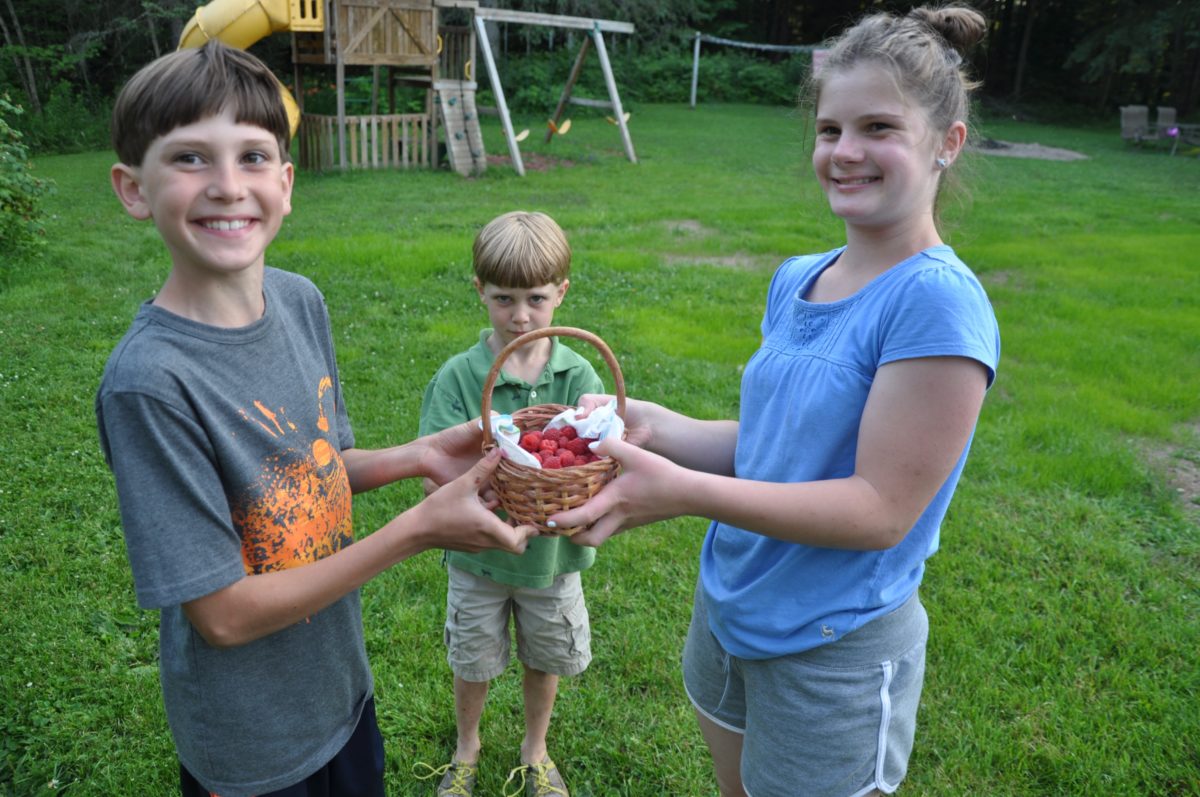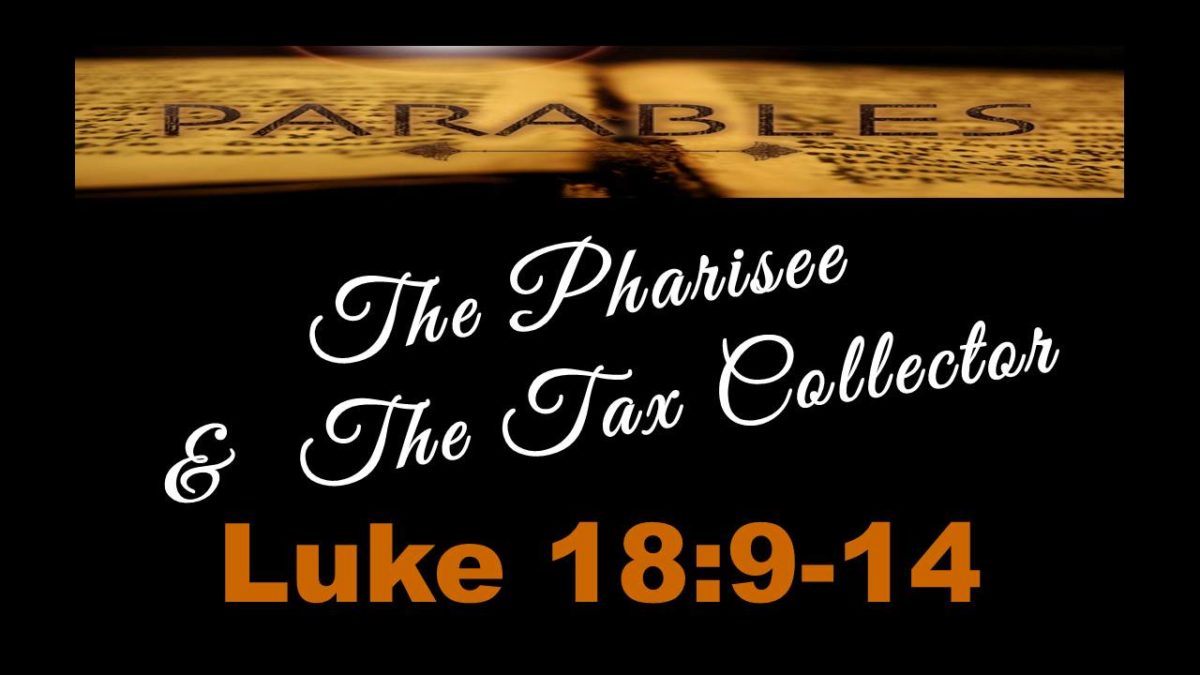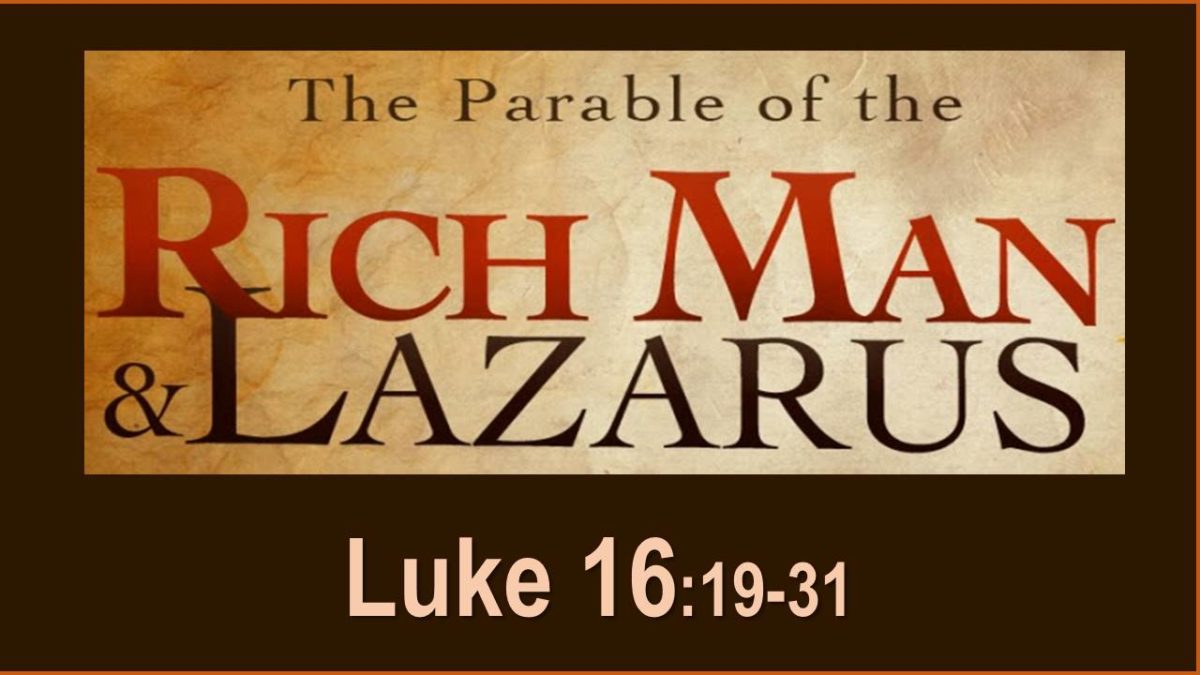Image credit: Sleepy Claus on Flikr: CC BY 2.0
How do you know a carrot? There’s yet a lot the Regier family is learning about growing things. Take, for example, what a carrot looks like.
This week as we labor with our wicker baskets full of orange carrots and other ripe produce from the garden, we remember how scant months ago we puzzled over the green, ferny little shoots that appeared overnight in our radish and carrot row. Many of these tender newcomers looked for all the world like other little shoots appearing in our potato rows, our lettuce row, and (for that matter) our flowerbed. How to remove weeds without pulling up the produce? As it turns out, we waited to extract the weeds, until we knew proof positive what a carrot, in fact, looks like—all for the sake of the carrots …
This week at Woodland, as we draw our summer series on the Parables of Jesus to a close, we come full-circle. We began in June with Jesus’ teaching of the The Sower and the Soils (Matt 13.18-23). Through that story we saw that those who “get” (understand, respond to) Jesus hear God’s Word, accept it and live for God. These are the fruitful soil that, verse 23, ” … bears fruit and yields, in one case a hundredfold, in another sixty, and in another thirty” (ESV). These people who respond to Jesus live alongside those represented by the other soils—rocky, shallow and thorny.
The Wheat and the Weeds (:24-30) continues the earlier story. Following that parable, this parable, in effect, tells what happens when the farmer harvests. And, in our world outside the fictive world of the parable, it describes the experience of those who follow Christ, despite resistance, while learning to look forward to Christ’s coming. What will be the experience of those who do respond to Christ? How will they co-exist with those who don’t “get” Jesus?
In the beginning of the parable the weeds triumph, for a time (:24-28a). The Sower plants good seed in his field. But while his men sleep his enemy commits bio-warfare, scattering weeds throughout his field, so that (like in the Regier garden) the produce and weeds appear together. The now wakeful servants identify the weeds, but the sower (who has never slept) identifies the problem—it’s the enemy.
The Wheat survives! (:28b-30). Now the servants, getting a bit ahead of the Sower, have a solution: let’s pull the weeds! But the Sower, firmly in command, realizes that the roots of both are intertwined. Pull the one, and you lose the other. Wisely, and patiently, the Sower instructs his servants to permit both to grow until the harvest. Easily lost in our distraction with the weeds at this point is the fact that the wheat has survived. The enemy has not triumphed … the weeds have not choked out the wheat … the resolution is a certainly, but not yet realized. The Sower is unshakable in his care for the wheat and, in some measure, for the weeds as well.
The Sower harvests, dividing for safe-keeping and destruction (:30b). The harvest arrives, and the reapers cut the crop and divide the wheat from the weeds. We’re back to familiar ground for the audience of Jesus’ day. Ancient Middle-Easterners would have recognized the lolium temulentum (also known as darnel or tares) that grew to about two feet high and imitated wheat in its early development. These ancient farmers knew the poisonous weed had one useful purpose—grist for the oven, burning. And, so in the parable, the weeds are destined for destruction, but the wheat is gathered safely into the Sower’s barn.
In the Matthew 13 telling of this story, Jesus addresses a great crowd. There must have been quite the buzz among that mixed group—some enemies of Jesus, others curious hangers-on to His teaching; but only some devoted followers of the invisible, but growing-despite-resistance Kingdom of God. Later in the chapter, Jesus pulls back with some of these, His true followers, to explain the parable (:36-43). From His explanation, we draw some lessons:
The Lesson of the Sower. Here we learn that God permits His followers to co-exist in the world with those who don’t follow Him. Following Christ’s return to the Father, the Apostles preached the Gospel, including the cross of Christ. They spoke of dependance on God by faith, confession of self-dependance and ever-increasing desire for God and His things followed by spiritual fruit. But, Satan imitates this fruit, bringing about the appearance of prosperity: “The weeds are the sons of the evil one, and the enemy who sowed them is the devil” (:38b-39a).
And so, we who follow Jesus today locate ourselves in the parable. The Devil and his “weedlings” are all around us, together with their message. Perhaps the most obvious weed-message sounds something like this: If I turn up in church and do my bit, God will give me health, recreational toys, success in family and business. I’ll be a good person and get my weekly God fix and so have high self-esteem to overcome my problems.
That’s being crass, but some of it sounds pretty good. Like novice gardens, how do we find the carrots among the mixed-message mess? Notice, and we take this right from the Gospels (Matt 4.1-11, for example) that weed-talk includes no mention of the work of Christ at the cross. And, there’s no longing for Christ’s return, and no expectation of resistance. By contrast, the wheat endures, rests in God’s care, and looks forward to Christ’s return when the mess of this world will be sorted out.
The Lesson of the Weeds. Likewise, we learn that those who don’t follow Christ will be held accountable, but at Christ’s return. In the meantime, followers of Jesus will be tempted to think that the way of faith in Christ doesn’t work. “Lord, do you want us to tell fire to come down from heaven and consume them?” (Luke 9.54). That was the disciples’ response to Jesus’ patience in the face of unbelief. What they were really saying was, Jesus this way of patient faith in you doesn’t produce fast fruit now! We could do this a lot better and faster on our own.
We’re not so different, really. When we pull back into our churches to list our grievances against those who don’t follow Christ, we are, in effect, getting ahead of God. Do you want us to light up the weeds, we’re asking God? He will judge, in time; till then, we endure, looking to Christ’s return.
Lesson of the Wheat (:43). Jesus’ explanation ends with His people safely in the Father’s care: “Then the righteous will shine like the sun in the kingdom of their Father … ” (:43). The wheat, followers of Christ, have always been in the Father’s care, but they probably didn’t feel like it all the time.
In our different seasons of life, we want to be safe in the Father’s barn, now! Until then, we feel left out in the field. The young person desiring marriage could easily compromise to marry someone without Christ. The seasoned couple entering retirement, but living sacrificially, looks to the leisure enjoyed by neighbors and wonders what God’s provision looks like.
Jesus’ endpoint reminds us that the harvest is coming. The Father’s care is never-ending. And, resistance is to be expected, but we will endure to the end. Those who “get” Jesus rest in God’s care—despite resistance—while looking to Christ’s return.
In the meantime, we don’t judge the weeds. (Some might be called to be wheat in time!) We preach the Gospel and allow God to do that inner work of regeneration in peoples’ lives and so do His own judging in His own time. And, we press toward Christ’s return, knowing we’ll be recognized by Jesus.
Circle up with your small group or group of close friends. Consider the following questions and so discuss how you ought to live out the truth of this teaching:
What do you find surprising, disturbing or encouraging about this parable?
Where do you find it most difficult to endure resistance from those in your life who don’t know Christ?
What does this parable teach you about God and His desires for you? What do you learn about His character?
How does your final destination of being safely with the Father give hope and meaning to your daily struggle to trust Christ?








